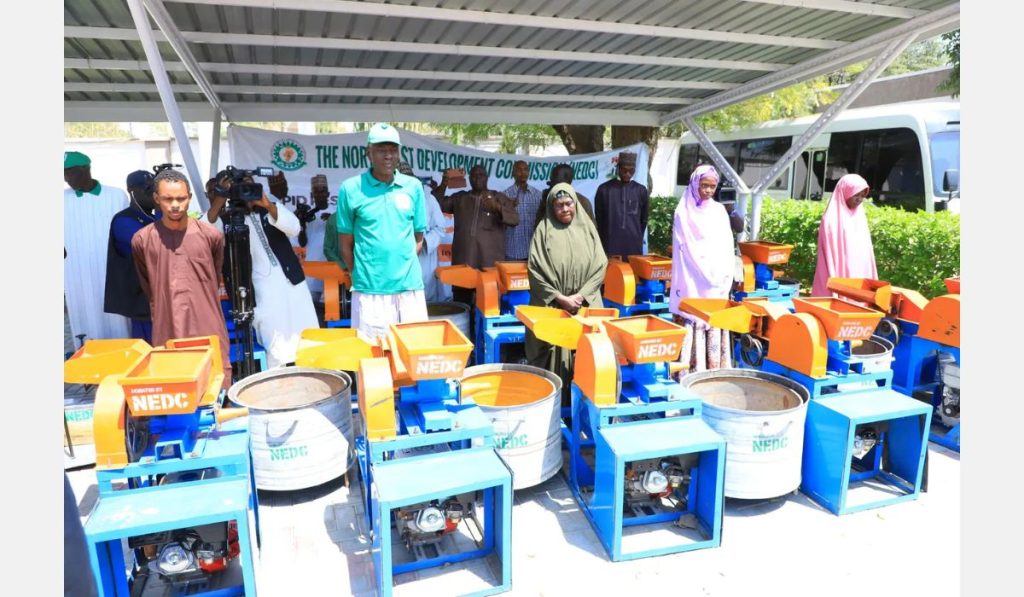
In a bold move to address environmental challenges and create economic opportunities, the North East Development Commission (NEDC) has empowered 300 scavengers in Borno State with briquette machines. This initiative is part of a larger strategy to combat the state’s growing waste problem—estimated at 105kg per month—while promoting job creation and sustainability.
The Managing Director of NEDC, Mr. Mohammed Alkali, made this announcement during the presentation of the machines to the trained beneficiaries on Monday, February 10, 2025, in Maiduguri, the state capital.
Alkali emphasized that the Commission’s strategy is designed to tackle climate change-related issues while harnessing waste for economic gain. Beyond equipping scavengers, NEDC is also fostering local capacity by engaging machine fabricators to produce briquette machines within the state.
“So, you can see that we have trained people to engage in productive activities. These youths will be manufacturing briquettes locally, enhancing their skills, and creating more job opportunities,” Alkali stated.
Read also: NEDC Donates Medical Supplies To Borno Government
To ensure sustainability, the Commission has committed to retaining local fabricators for at least one year and will closely monitor beneficiaries to ensure the machines are used optimally.
Dr. Zainab Challube, project coordinator from the University of Maiduguri, highlighted the extensive training program. The program was conducted in two cohorts and nearly 300 participants received training.
“The first phase included scavengers and trainers, while the second was strictly for trainers. In total, we trained about 300 individuals,” she said.
Dr. Challube noted that the initiative is a direct response to the growing challenge of indiscriminate waste disposal in Borno. By equipping scavengers with both theoretical knowledge and practical skills, the project aims to transform waste management into a structured and profitable industry.
“This initiative will not only improve waste recycling but also create a centralized recycling plant in Borno, where waste can be converted into wealth,” she added.
With over 451 tonnes of plastic entering Maiduguri in addition to locally produced waste, this project marks a significant step toward sustainable waste management and economic empowerment in the North-East region.
[give_form id="20698"]

